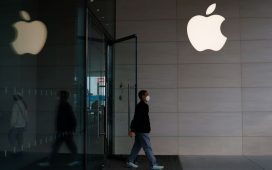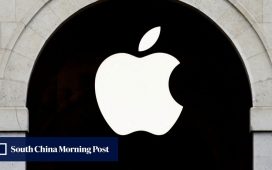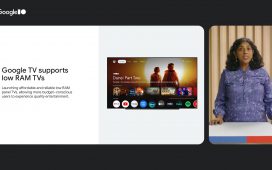Digital rights advocacy organizations contend that Apple has failed to comply with its interoperability obligations under the EU’s Digital Markets Act (DMA).
The groups made their case in a letter [PDF] asking competition watchdogs to do more to ensure Apple’s compliance with the Article 6(7) of the DMA.
The letter is the work of four groups – the Free Software Foundation Europe, freedom of expression advocates ARTICLE 19, European Digital Rights, and Data Rights – plus three independent researchers.
Article 6(7) matters because it requires companies designated as gatekeepers – Alphabet, Amazon, Apple, ByteDance, Meta, and Microsoft – to provide non-discriminatory access to, or interoperation with, designated software and hardware, to promote competition.
In September 2024, the commission opened two proceedings against Apple covering its interoperability obligations with regard to iOS connectivity features like the peer-to-peer file exchange tech AirDrop and how the iCompany should accommodate developer requests for interoperability.
The letter’s signatories argue that the commission’s approach so far, “as laid out in Apple’s compliance report and as observed in practice so far, is clearly deficient and structurally incapable of delivering effective interoperability, as required by the DMA.”
The rights groups list several recommendations they believe could help bring Apple into compliance.
First, they want the commission to forbid Apple from imposing Non-Disclosure Agreements (NDAs) on developers solely at its own discretion. Any such agreement, they argue, should be evaluated on a case-by-case basis, with developer input noted in case there’s disagreement.
Second, they want a standardized interoperability request form that developers can submit to Apple. The signatories think that will improve transparency and reduce the delaying tactics that have been reported by devs seeking information from Apple about APIs intended to make an app or product work with the iOS ecosystem.
Third, they want the commission to revisit Paragraph 20(B)(e) [PDF] of the DMA, which grants Apple the discretion to conceal symbols or accompanying descriptions related to its frameworks and libraries based on security concerns.
“We maintain that Apple should not be permitted to rely on security by obscurity, even though it is presently practiced in iOS,” the letter says. “On the contrary, the developer should be allowed to claim that the implementation of an interoperability solution is in place based on Open Standards and publicly available documentation, the burden would fall on Apple to prove otherwise.”
The signatories also take issue with Apple’s “Feedback Assistant” through which developers are supposed to be able to communicate about interoperability issues. They want the commission to make clear that Apple cannot provide third-party APIs that are less effective than its own APIs, and to ensure that Apple makes its APIs flexible, per the commission’s intent.
What’s more, they contend, tracking interoperability requests is made harder by the lack of a public bug tracking system – a sore point in the Apple developer community since at least 2011 when Tim Burks and Chris Verwymeren set up Open Radar, an unofficial bug-report-sharing site for third-party Apple developers.
“Bugs and errors in APIs commonly arise and necessitate timely and effective fixes by Apple,” the letter’s authors state. “We therefore suggest the commission mandates improvements to Apple’s existing bug reporting system or creates a dedicated infrastructure for bug reporting, which should be publicly available on their website.”
The letter goes on to claim that Apple, through its app notarization process, “can leverage multiple channels under the current request-driven approach as a means to block interoperability.”
Pointing to Apple’s denial of an interoperability request to make its just-in-time (JIT) compilation APIs available to iSH, a Linux shell for iOS, the advocacy groups argue that the commission should reconsider how DMA obligations relate to one another lest Apple be allowed to continue strategically blocking interoperability.
Finally, the authors ask the commission to become more involved in the dispute resolution process, to reinforce the DMA’s commitment to interoperability, and to promote a more open and transparent process – which has never been Apple’s preferred approach to communication.
For its part, Apple last month published a document [PDF] warning that the DMA’s interoperability requirements could expose personal information to the likes of Meta.
“As an example of our concerns, Meta has made 15 requests (and counting) for potentially far-reaching access to Apple’s technology stack that, if granted as sought, would reduce the protections around personal data that our users have come to expect from their devices,” the company said.
Were Apple to grant these requests, the iBiz said, Meta’s apps would have access to all sorts of data that Apple itself has chosen not to access for the sake of privacy – much of which we suspect Apple could access via iCloud or other means if presented with a lawful demand for access.
Meta communications director Andy Stone responded with his opinion that Apple is really saying “They don’t believe in interoperability. In fact, every time Apple is called out for anti-competitive behavior, they defend themselves on privacy grounds that have no basis in reality.” ®









